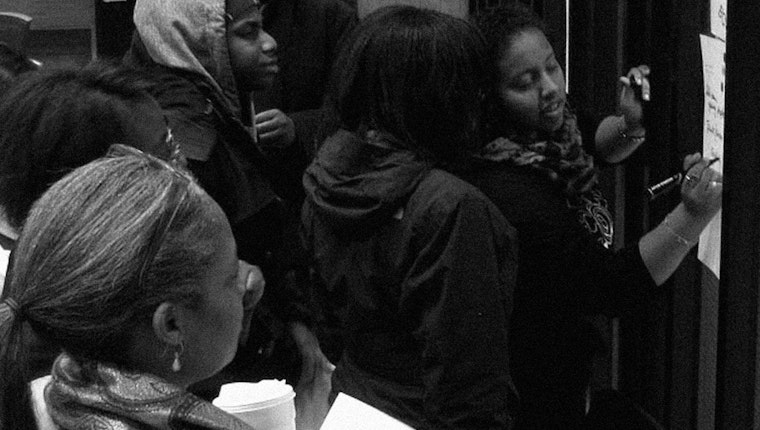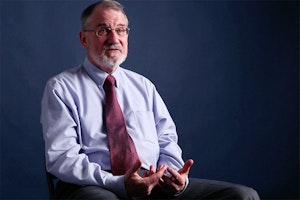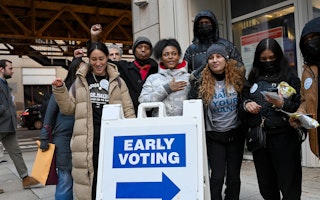The Power of Participatory Decision Making
By Andrea Batista Schlesinger

When I was 13, I learned the power of participation. I became one of the first young people to serve on the Mayor’s Youth Advisory Council, created by then New York City Mayor David Dinkins.
This ruined my parents’ lives. Their hopes for me to become a corporate lawyer were dashed as I fell in love with the idea of helping to shape my democracy. I’ve since seen the power of participating time and time again, and how the involvement of people in their own democracy leads to better decisions and outcomes.
But, too often, decisions are made in a vacuum, without the participation of those most affected. We don’t ask communities about whether they need another school or a park, or where they want city resources to go. We don’t ask students to help determine whether their teachers are effective, or whether government agencies are performing to our satisfaction.
We think of “democracy” as the thing that people do when they vote. And once they vote, we leave it to the elected officials to make the best decisions. This inevitably means that communities with less political influence will be consulted less when the decisions that determine the opportunities and constraints of their lives are made. This inevitably means that the divide between people and their government representatives will continue.
Now, we have a chance to do something about that, on the global stage. On Friday, the United Nations and its member states approved the Sustainable Development Goals, or what Secretary General Ban Ki-moon calls “the people’s agenda”—a declaration of aspirations for improving standards of living around the world, on issues ranging from climate change and income inequality to armed conflict and access to justice. Goal 16 carries with it an explicit call to all nations to “ensure responsive, inclusive, participatory, and representative decision making at all levels.”
Up until a few months ago, I had no idea what the Sustainable Development Goals (SDGs) were. Many Americans won’t.
The SDGs, like the Millennium Development Goals that preceeded them, are likely to be perceived as the aspirations for how to fix the developing world—the things we want other countries to do. But there is much we can do to improve citizen participation in the affairs of this nation.
From participatory budgeting in Brazil to social audits in India to a group of senior citizens designing a center for the elderly in Finland, we can learn from innovations in other nations. And we can help bring compelling local experiments in our communities to the national, and even international, stage.
For example, in January of 2014, Boston launched the first youth participatory budgeting process in the United States, giving young people a direct say in developing parks, playgrounds, and arts spaces and a stake in what their communities will look like for years to come. In St. Louis, citizens engaged in a planning process with city officials that created a new system of parks and trails. And in Portsmouth, New Hampshire, a conversation between the city manager and parents concerned about school bullying turned into a new and lasting civic forum for local folks to hash out a wide range of issues affecting their quality of life.
When taken together, each of these initiatives suggest an opportunity for reimagining how people can be involved in governance.
Many of the organizations and activists that the Open Society Foundations work with in the United States are engaging people every day, at the community level, in the effort to create more equitable and just public policy. The SDGs are a lever for them to push their local democracies to be more accountable, to be more inclusive, to be more open. These global compacts will not work if we don’t use them.
This is particularly urgent in the United States, where we are more apt to shine the spotlight on other nations. What if we required every city in the United States to come up with a plan for how they intend to comply with these goals, with a particular emphasis on Goal 16? What would it look like if cities institutionalized ways in which the input of citizens who could otherwise easily be excluded—youth, the homeless, the incarcerated—into their budgeting processes because they were required to do so? What would it look like if newly elected officials opened up their “transition” process so that citizens could help shape the agenda for their administrations?
To do this, civil society will need to push government. And we will have to expand our own imaginations behind a particular policy outcome to invest in changing the means by which we practice democracy and not just “win.”
Until April 2017, Andrea Batista Schlesinger was the deputy director of U.S. Programs at the Open Society Foundations.


